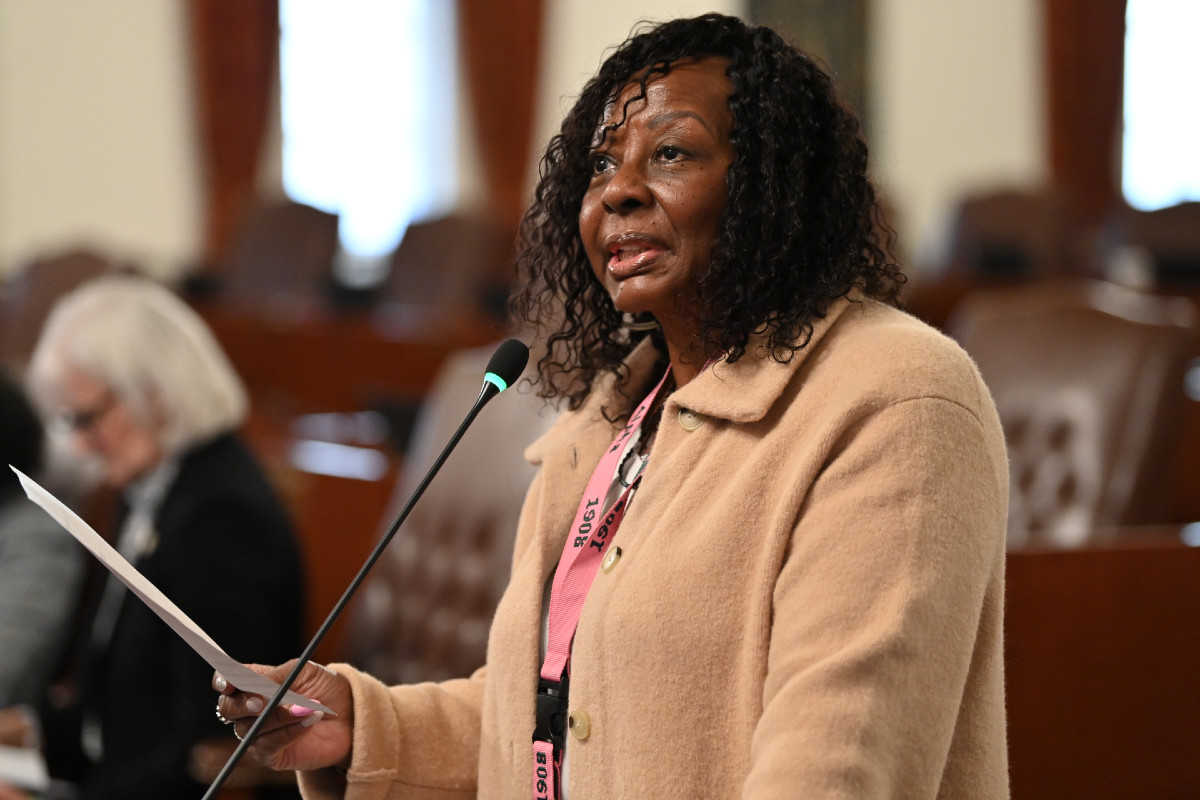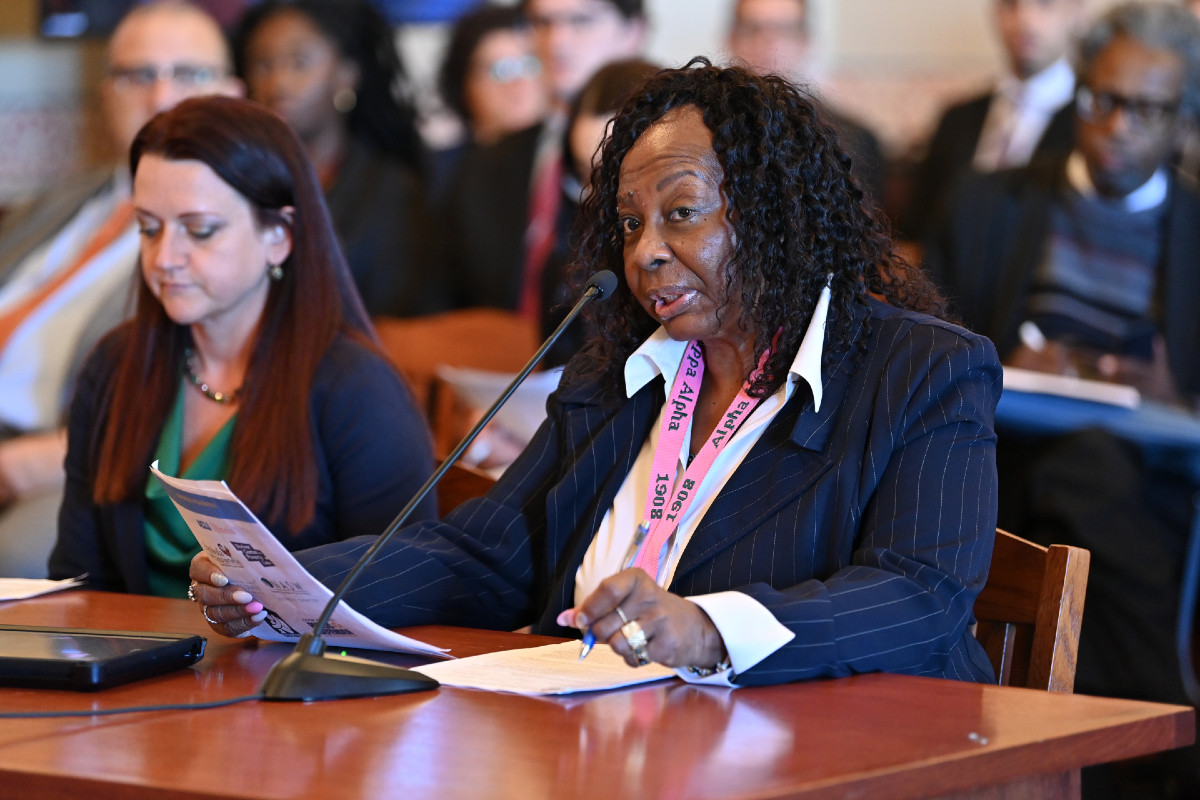- Details
- Category: Press Releases
 CHICAGO — State Senator Mattie Hunter joined the Illinois Capital Development Board and the Illinois Department of Healthcare and Family Services in announcing $200 million in funding to improve health outcomes in the state, including $22 million for a youth and community space in Bronzeville.
CHICAGO — State Senator Mattie Hunter joined the Illinois Capital Development Board and the Illinois Department of Healthcare and Family Services in announcing $200 million in funding to improve health outcomes in the state, including $22 million for a youth and community space in Bronzeville.
“This investment will strengthen access to health care services and expand resources for youth and families within the 3rd District,” said Hunter (D-Chicago). “Insight Chicago is one of our state’s safety net hospitals, and this project will further enhance the ways it meets the needs of our area.”
- Details
- Category: Press Releases
 SPRINGFIELD — State Senator Mattie Hunter’s legislation focused on improving the lives of children in state care by providing enhanced support to relative caregivers and reducing barriers to permanency passed the Senate on Thursday.
SPRINGFIELD — State Senator Mattie Hunter’s legislation focused on improving the lives of children in state care by providing enhanced support to relative caregivers and reducing barriers to permanency passed the Senate on Thursday.
“Current licensing procedures create unnecessary roadblocks to financial assistance for relatives serving as caregivers,” said Hunter (D-Chicago). “Research shows children are better off when they can maintain connections to their families and traditions. We need to provide these families with the support they need to make this possible.”
House Bill 4781 — also known as the Kinship in Demand (KIND) Act — aims to reinforce family connections and improve outcomes for children in foster care. The bill would strengthen family engagement by requiring the Illinois Department of Children and Family Services to notify relatives within 30 days of a child’s entry into care.
- Details
- Category: Press Releases
 SPRINGFIELD — Despite research indicating improved stability and emotional well-being for children placed with relative caregivers, over 60% of these caregivers in Illinois are denied the financial support received by unrelated foster care parents. To address this disparity, State Senator Mattie Hunter advanced a measure through the Senate Judiciary Committee on Tuesday aimed at removing barriers and strengthening kinship care.
SPRINGFIELD — Despite research indicating improved stability and emotional well-being for children placed with relative caregivers, over 60% of these caregivers in Illinois are denied the financial support received by unrelated foster care parents. To address this disparity, State Senator Mattie Hunter advanced a measure through the Senate Judiciary Committee on Tuesday aimed at removing barriers and strengthening kinship care.
“We know children are more likely to thrive when they remain connected to their families and culture,” said Hunter (D-Chicago). “However, many relatives who step into the caregiver role — often at a moment’s notice — face significant financial challenges.”
House Bill 4781 — also known as the Kinship in Demand (KIND) Act — aims to reinforce family connections and improve outcomes for children in foster care. The bill would strengthen family engagement by requiring the Illinois Department of Children and Family Services to notify relatives within 30 days of a child’s entry into care.
- Details
- Category: Press Releases
 CHICAGO — State Senator Mattie Hunter (D-Chicago) and State Representative Sonya Harper (D-Chicago) issued the following joint statement after the closure of PepsiCo’s Back of the Yards plant:
CHICAGO — State Senator Mattie Hunter (D-Chicago) and State Representative Sonya Harper (D-Chicago) issued the following joint statement after the closure of PepsiCo’s Back of the Yards plant:
“On Monday, Oct. 28, workers at the PepsiCo plant on 51st Street in Back of the Yards were blindsided by the company’s abrupt decision to shutter the facility and immediately lay off employees — some of whom had worked there for 45 years, were nearing a retirement or are sole providers for families with children and people with disabilities.
“Illinois law requires that both workers and state and local governments be given 60 days’ notice of plant closings or mass layoffs. PepsiCo claims it complied with applicable legal requirements, but how can that be the case if the workers, state and city had no advance warning?
“To the workers: We’re sorry this is happening to you, but you are not alone. We see you, and so does your government. We will be looking into this, and if laws were violated, we will push for the applicable remedies to be applied.”
Affected workers in need of assistance can contact Senator Hunter’s office at 312-949-1908 or Representative Harper’s office at
More Articles …
Page 6 of 57

